

How to increase the average check in retail using CCTV cameras
CCTV cameras are usually placed where they can cover the store's entire sales area. Customers are constantly in their field of view, providing huge potential for analyzing their behavior and using this data to increase the average check.
Profit in retail: what it's comprised of?
A retail outlet's profitability and efficiency are determined by several parameters. The five main ones are:
conversion;
average check value;
sales volume per square meter;
sales volume in value terms
the number of returns and salary intensity.
Low profits are often a result of an inability to increase the average check value.
What is the average check?
The average check, or average order value, is the average transaction amount that is calculated by dividing the total number of sales by the total number of guests. Its size is influenced by:
sales, promotions, discounts;
prices;
range;
merchandising;
marketing communications.
Retail marketers analyze every little detail, calculate all possible risks and build strategies to increase the average check. But in reality, their recommendations are not always implemented, and deviation from the strategy leads to significant losses for the retailer.
What can go wrong?
The human factor often interferes with the strategy: all employees have different levels of responsibility.
Promotions, discounts, and sales do not have the expected results, because store employees do not have time to label goods and price tags on time. So customers never see the available offers. Carefully calculated prices do not trigger purchases simply because there is no price tag, so the buyer cannot see it and make a decision.
The assortment and display can not influence the average check if goods are not on the display. This also leads to the expiration of goods. In addition, empty shelves and lack of familiar products reduce customer loyalty.
All these factors result in buyers who rarely visit the store or even choose another place to shop.
Profits could be also lowered for the following reasons:
theft;
long check out queues discouraging purchases;
checkout fraud;
impolite staff.
How to use video surveillance?
To ensure that the marketing strategy does not fail because of the shop employees, it is important to use tracking tools. These can be analytical modules of video surveillance systems.
Possibilities of modern CCTV systems:
Check the availability and relevance of price tags and promotional items. If they are absent, the employee receives a notification and the reaction time will be accounted for.
Track the availability of goods on the shelf and time of their absence. Video analytics tell employees which products to put on the shelf and when.
Make forecasts. This is especially relevant for in-store products. For example, in-store mini-bakeries can calculate how much bread to put on the shelves and when.
Monitor the staff working. You can evaluate different parameters: communication, reaction time, timeliness of customer assistance, etc.
Eliminate queues.
How to integrate video analytics into business processes?
In our experience, there are several common situations where analytics modules do not work:
The chain has fewer than ten store locations. Normally, such chains do not have sufficient staff to process the reports and recommendations received and need to use other resources. As a result, the CCTV system just incurs additional costs.
The retail outlet is less than 100 sq. m., with low attendance. In such stores, employees can manage to track all "weak points" by themselves.
To implement the system, the company should start with pilot projects. They allow the retailer to set up processes, measure efficiency, and introduce new responsibilities to job descriptions and employee KPIs.
What's New?
All news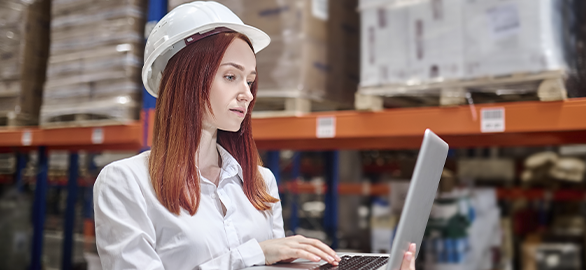
No More Blind Spots: How TRASSIR Reduces Losses and Investigation Time in Warehouses
No More Blind Spots: How TRASSIR Reduces Losses and Investigation Time in Warehouses
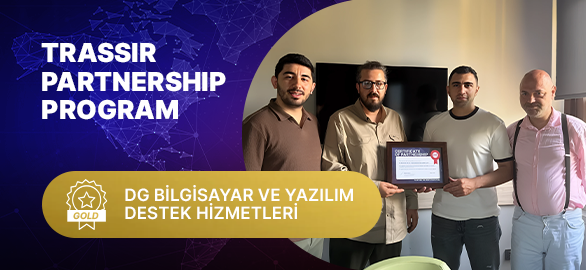
Welcoming Our New Gold Partner: DG Bilgisayar ve Yazılım Destek Hizmetleri
Welcoming Our New Gold Partner: DG Bilgisayar ve Yazılım Destek Hizmetleri
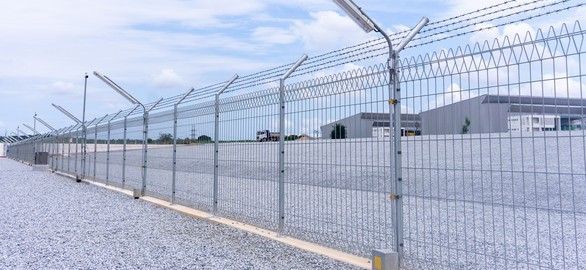
Beyond the Perimeter: How TRASSIR Protects What’s Outside Your Factory Walls
Beyond the Perimeter: How TRASSIR Protects What’s Outside Your Factory Walls

Welcoming Our New Platinum Partner: KARE BİLGİSAYAR SANAYİ VE TİCARET ANONİM ŞİRKETİ
Welcoming Our New Platinum Partner: KARE BİLGİSAYAR SANAYİ VE TİCARET ANONİM ŞİRKETİ
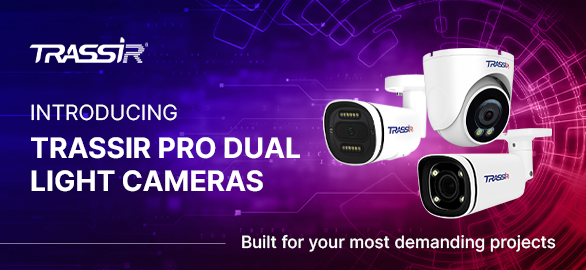
TRASSIR Launches New Cameras with Dual Illumination to Reduce Incident Investigation Time
TRASSIR Launches New Cameras with Dual Illumination to Reduce Incident Investigation Time
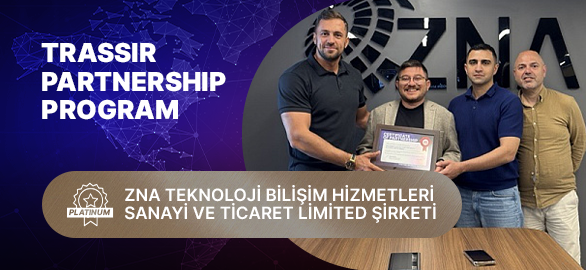
Welcoming Our New Platinum Partner: ZNA TEKNOLOJI
Welcoming Our New Platinum Partner: ZNA TEKNOLOJI
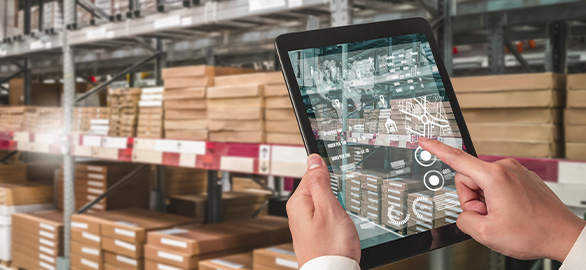
Keeping Things Moving: How TRASSIR Helps Logistics Run Smoothly
Keeping Things Moving: How TRASSIR Helps Logistics Run Smoothly

Welcoming Our New Platinum Partner: LION TECHNOLOGY
Welcoming Our New Platinum Partner: LION TECHNOLOGY

New Success Story: Industrial-Grade Security at Mirbey Plastik
New Success Story: Industrial-Grade Security at Mirbey Plastik
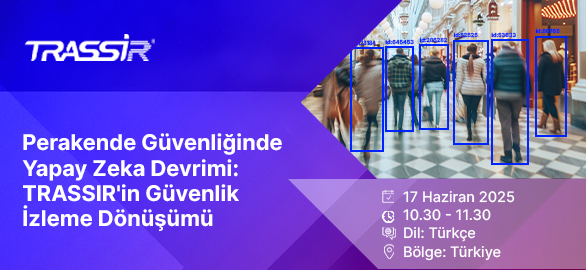
AI-Powered Insights for Retail Security in Türkiye: How TRASSIR’s intelligent video analytics transform retail surveillance
AI-Powered Insights for Retail Security in Türkiye: How TRASSIR’s intelligent video analytics transform retail surveillance
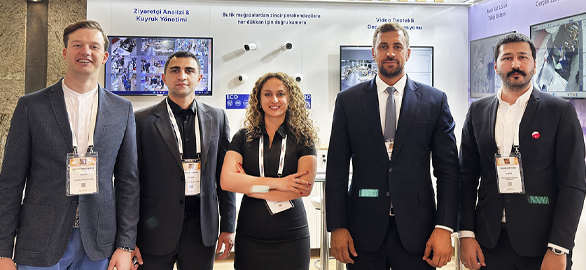
Our First Step into Global Retail: Highlights from Retail Days 2025
Our First Step into Global Retail: Highlights from Retail Days 2025

Transforming Campus Safety: TRASSIR’s Proactive Approach to Protection
Transforming Campus Safety: TRASSIR’s Proactive Approach to Protection
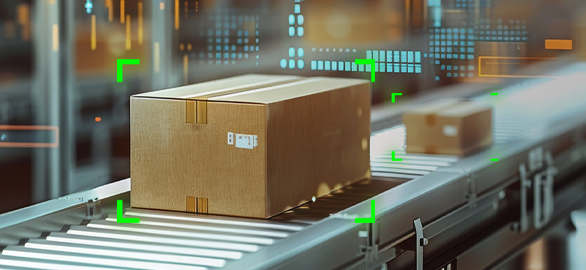
Smarter Surveillance, Smoother Manufacturing
Smarter Surveillance, Smoother Manufacturing

TRASSIR Solutions to Be Featured at Securex South Africa 2025 by neaMetrics
TRASSIR Solutions to Be Featured at Securex South Africa 2025 by neaMetrics
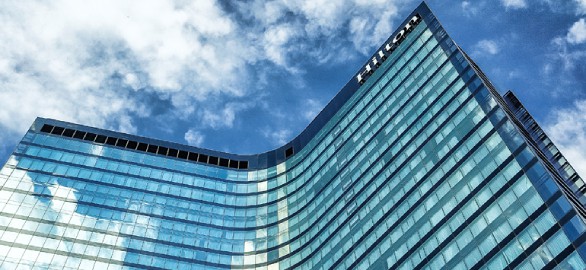
Success Story: Smarter Access Control at Hilton Istanbul Bomonti
Success Story: Smarter Access Control at Hilton Istanbul Bomonti

Retail Losses Start at the Checkout: Here’s How to Fight Back
Retail Losses Start at the Checkout: Here’s How to Fight Back
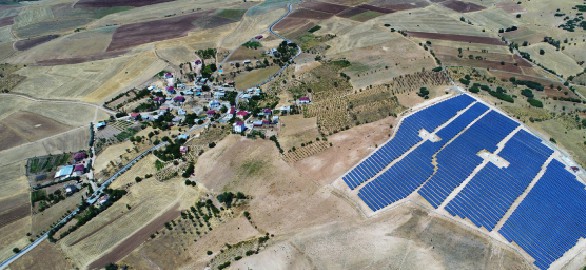
Zigana Energy Secures Solar Fields with TRASSIR’s AI-Powered Surveillance
Zigana Energy Secures Solar Fields with TRASSIR’s AI-Powered Surveillance
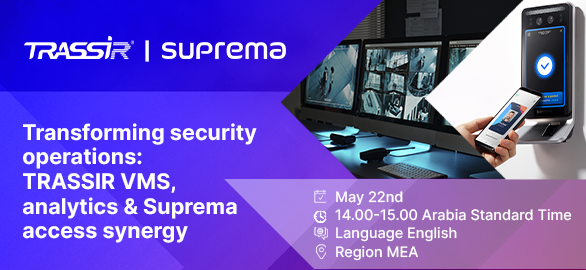
Transforming Security Operations: TRASSIR VMS, Analytics & Suprema Access Synergy
Transforming Security Operations: TRASSIR VMS, Analytics & Suprema Access Synergy

Video-Enabled Fire Safety: Improving Visibility and Incident Response
Video-Enabled Fire Safety: Improving Visibility and Incident Response
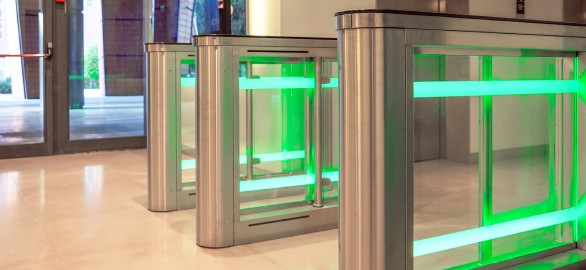
Why Your Access Control System Needs Eyes: The Case for Video Integration
Why Your Access Control System Needs Eyes: The Case for Video Integration
Try TRASSIR For Your Business
Learn more about how TRASSIR analytic modules work! Demo mode is an opportunity to see for yourself how the system works, and also check the interface and test all the functions.Success!
We will contact you as soon as possible